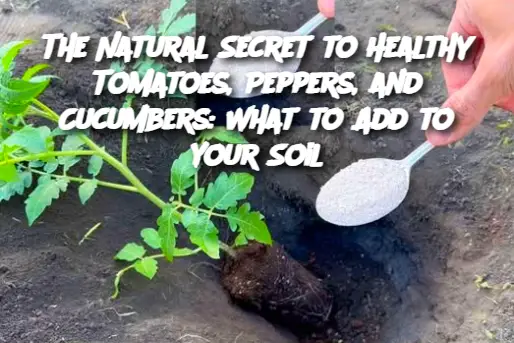Dissolve 1 tablespoon of Epsom salt in 1 gallon of water and use it to water your plants every 2–3 weeks.
Sprinkle a teaspoon of Epsom salt around the base of each plant before watering.
5. Bone Meal
Why It Works:
Bone meal is a slow-release fertilizer rich in phosphorus, which supports root development and flowering.
It’s especially beneficial for tomatoes and peppers, which need strong roots for heavy fruit production.
How to Use:
Mix bone meal into the soil at the base of each plant before planting.
Follow package instructions to avoid over-application.
6. Wood Ash
Why It Works:
Wood ash raises soil pH, making it less acidic, and adds potassium, which helps plants flower and fruit.
It also deters pests like slugs and snails.
How to Use:
Sprinkle a thin layer of wood ash around the base of plants.
Avoid using too much, as it can make the soil too alkaline.
7. Mulch
Why It Works:
Mulch retains soil moisture, regulates temperature, and suppresses weeds.
Organic mulches like straw or shredded leaves break down over time, adding nutrients to the soil.
How to Use:
Apply a 2–3 inch layer of mulch around your plants, keeping it a few inches away from the stems to prevent rot.
8. Fish Emulsion
Why It Works:
Fish emulsion is a fast-acting organic fertilizer packed with nitrogen, phosphorus, and potassium.
It provides a quick boost during the growing season.
How to Use:
Dilute fish emulsion according to the package instructions and apply as a soil drench or foliar spray every 2–3 weeks.
9. Banana Peels
Why It Works:
Banana peels are rich in potassium and phosphorus, which are essential for flowering and fruiting.
How to Use:
Chop banana peels into small pieces and bury them near the roots.
Alternatively, soak banana peels in water for a few days to create a nutrient-rich fertilizer tea.
10. A Balanced Approach
For the best results, use a combination of these amendments tailored to your soil’s needs. Conduct a soil test to determine nutrient deficiencies and pH levels before adding amendments.
Tips for Success
Rotate Crops: Prevent nutrient depletion by rotating tomatoes, peppers, and cucumbers with other crops each year.
Water Wisely: Ensure consistent watering to prevent stress, especially for fruiting plants.
Prune and Support: Keep plants healthy by removing dead leaves and providing stakes or cages for support.
Conclusion
By adding natural amendments like compost, eggshells, and Epsom salt to your soil, you can create the ideal growing conditions for healthy tomatoes, peppers, and cucumbers. These simple, eco-friendly additions not only boost your plants’ health but also lead to more abundant and flavorful harvests. 🌱🍅✨
